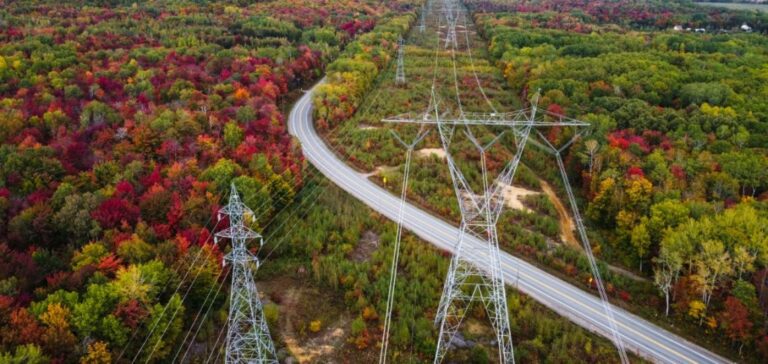The Canadian federal government’s ambition to eliminate greenhouse gas (GHG) emissions from electricity production by 2050 presents an unprecedented challenge. According to a study by the Fraser Institute, population growth, economic expansion, and the electrification of transportation will significantly increase electricity demand. To meet these needs solely with low-carbon energy sources, Canada will have to build infrastructure at an unprecedented pace and scale.
A Complex Equation for the Energy Mix
The scenarios considered by the Fraser Institute highlight the magnitude of the challenge. For a transition relying solely on solar power, 840 solar power plants equivalent to Alberta’s Travers Solar Project would need to be built. With an average construction time of two years per project, this would total 1,680 cumulative years of work.
In the case of wind power dependence, the country would need to establish 574 wind farms similar to the Seigneurie de Beaupré in Quebec, requiring an effort of 1,150 cumulative years of construction. As for hydropower, the scenario would necessitate the construction of 134 dams comparable to Site C in British Columbia, each requiring seven years of work, totaling 938 cumulative years of construction.
Nuclear: A Faster but Costly Alternative
The study also considers nuclear power as an option, requiring 16 reactors equivalent to those at the Bruce Nuclear Generating Station in Ontario. With a timeline of seven years per plant, this scenario would amount to 112 cumulative years of construction. However, costs and regulatory constraints remain a hurdle.
The example of the Site C project in British Columbia illustrates these challenges. Initiated in 1971, it took 43 years before receiving environmental approval in 2014. Its expected delivery in 2025 comes with a budget of $16 billion, far exceeding initial projections.
Regulatory and Logistical Obstacles
Canadian energy infrastructure is subject to complex regulatory processes, leading to significant delays. The construction of new sites, regardless of the chosen production method, will face challenges related to social acceptability, rising material costs, and the country’s ability to mobilize a skilled workforce.
The challenge posed by the government’s objectives is not just a technological issue but also an economic and administrative one. Upcoming decisions will need to integrate these realities to ensure a reliable and competitive energy supply in the coming decades.






















